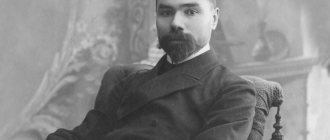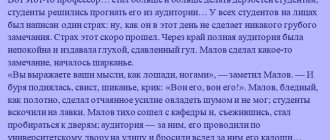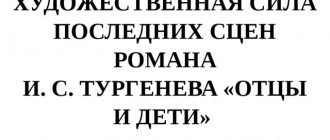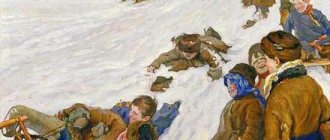Biography
A great tyrant and murderer who subjected the state to a terrible famine and involved it in the chaos of the Time of Troubles. At the same time, during the 7 years of Boris Godunov’s reign, Russia strengthened its influence and its own borders, but internal conflicts provoked the ascension to the throne of the impostor False Dmitry.
Boris was born in 1552 into the family of a landowner who lived near the city of Vyazma. The Godunovs' pedigree goes back to the Tatar Chet-Murza, who settled in Rus' during the reign of Ivan Kalita. Boris's ancestors are Kostroma boyars, who over time become Vyazma landowners.
Portrait of Boris Godunov
Being a provincial nobleman, the young man received an education, but did not become familiar with the Holy Scriptures. The study of church books was considered a fundamental component of study, so gaps in this area were not allowed. Contemporaries called the future king a poorly educated and nasty youth. Literacy and calligraphic handwriting were not taken into account.
The years of Boris Godunov's reign: Boriska's reign
The direct heir to the throne during the reign of Fedor, and in fact Boris Godunov, was his half-brother Dmitry, the son of the seventh wife of Ivan the Terrible. On May 15, 1591, little Mitenka, supposedly suffering from epilepsy, while playing with friends, accidentally stabbed himself with a pocket knife in Uglich. Vasily Shuisky, who was investigating the case, really wanted to please Godunov, so the official version was approved by “negligence of the Nagikh boyars.” Chronicles already under the Romanov tsars indicate that Godunov himself ordered the murder of the prince, who stood in his way to absolute power.
Godunov on the throne: foreign and domestic policy
Boris Godunov became the ruler of Russia as a result of the fact that on January 7, 1598, Tsar Fyodor Ivanovich died, and the male branch of the Moscow Rurik princes was completely interrupted. Isaac Massa, a Dutch merchant, traveler and diplomat, believed that Boris Godunov brought his death closer, not without the participation of his selfish wife, who dreamed of quickly becoming a real queen.
The only heir remained Fedora's second cousin Maria Staritskaya, but she was a nun, so she was not even suitable for the role of regent. On February 17, 1598, the Zemsky Council met, by decision of which the oath was taken to the brother-in-law of the deceased ruler. This is the date of Boris Godunov’s accession to the throne. Just at this time, an active rapprochement between the West and Russia begins. Godunov greatly respected foreign guests and considered the world order of their countries to be much more advanced than in his native country.
He invited foreigners to serve, and in 1604 he even sent a special messenger to Georgia to marry his daughter to the local prince. Of course, everyone rushed to Moscow, after a long period of calm under Ivan the Terrible, where they had real prospects of both a career and financial nature. Therefore, military men, architects, merchants, scientists and many others from enlightened Europe appeared in the city. The influence of foreign trends on Russian culture was enormous at that time, which is why many historians compare the reign of Godunov with Peter the Great.
Repression, famine and the impostor prince
The story of Boris Godunov was not as simple as it might seem. The first king, who came to the throne not by hereditary law, but by electoral law, constantly felt the precariousness of his own position. However, despite all the apparent pro-Westernism of domestic and foreign policy, in suspicion and vindictiveness he was little inferior to Ivan the Terrible. As soon as he reached the throne, he immediately began to take revenge on the unwanted boyars, organizing real repressions. He simply forbade Prince Shuisky, as well as Mstislavsky, from marrying so that their children would not subsequently be able to claim the throne, and his former first friend and comrade-in-arms, Bogdan Belsky, was insulted and exiled out of sight, and these were far from private and isolated cases.
The years of the reign of Boris Godunov, which began so successfully, suddenly began to “deteriorate” in 1601. When prolonged heavy rains practically destroyed the entire harvest, which was finished off by early frosts, famine clearly loomed ahead. The next year there was a bad harvest again and then it turned into full force. Boris tried with all his might to get people through the difficult years, distributed bread and money to the needy, did not allow prices to go up, but all his efforts went down the drain, people did not even appreciate the open royal barns, and began to blame him for all the troubles, as someone who had illegally taken the throne. Then riots and riots began to arise. The largest can be considered the Cotton Rebellion, which was suppressed only in 1603.
At the same time, gossip spread throughout the country that not only was the tsar not real, but there was also one who miraculously escaped in Uglich, that is, Tsarevich Dmitry. It was rumored that he was allegedly taken abroad by a German teacher when there was an assassination threat, and a completely different boy was killed. It was then customary to speak about Godunov in a disparaging tone, and in 1604 a letter was even intercepted saying that the real tsar was with the Cossacks and would soon come to get his. On October 16, 1604, False Dmitry I and the Poles moved to Moscow, but were completely defeated near Dobrynichi.
Approaching the royal retinue
In 1565, Ivan the Terrible fights for undivided power, and for this he divides Rus' into zemshchina and oprichnina. The latter creates its own Duma, ministries and army. The Godunovs' possessions turned out to be on the side of the oprichnina lands, and Dmitry Ivanovich (Boris's uncle) enlisted in the military corps. At the expense of the disgraced boyars he increased his fortune. The Tsar appreciated Dmitry’s merits and brought him closer to the court, granting him a high rank.
Tsar Ivan the Terrible
After the death of their parents, Irina and Boris Godunov, their uncle took custody of the children. Constant travel was not conducive to the full upbringing of his offspring, so Dmitry settled the orphans in the Kremlin, having agreed with the autocrat. The children grew up in complete comfort along with the royal heirs. Ivan the Terrible loved to talk with the younger Godunov and even ordered him to write down his own wise thoughts.
The young man was attracted by power and court luxury, but was amazed by the torture to which Ivan the Terrible subjected the rebels. While in the state retinue, he was forced to observe the executions and torture of the disgraced. The boy quickly realized that he would not survive in the bloody court if he did not learn to control pity and emotions. He was forced to pick up instruments of torture and “have fun” together with Grozny and the guardsmen.
Malyuta Skuratov
At the age of 18 he took the place of state bed guard. The previous one was executed by being impaled. Now, due to his duty, the young man becomes the eyes and ears of the tsar, in charge of the Kremlin household and security. Nausea and behind-the-scenes intrigue are now Boris’s native element, who is forced to fight with his rivals.
The smart courtier attracted Malyuta Skuratov, who feared for his life and was looking for loyal allies. Malyuta gave his youngest daughter Maria as a wife to Godunov, and his eldest to Vasily Shuisky.
Vasily Shuisky
In 1571, a young courtier betrothed Ivan the Terrible’s son to a relative, Evdokia Saburova. The autocrat did not like the daughter-in-law, who accused the girl of disrespect and sent her to a monastery. Boris learned that the lustful father-in-law was harassing the young beauty and became angry after a categorical refusal. Godunov shared his opinion with a friend, who immediately conveyed the information to the king.
The bed-maid's career was shaken. Now the angry Grozny will give the order for execution at any moment. The man was rescued from the torture chamber by his beloved sister Irina, who persuaded Fyodor (the Tsar’s son) to resolve the issue of pardon. The girl was famous for her intelligence, literacy and beauty. Fyodor liked the charming Irina since childhood, but did not pay attention to the tongue-tied advances.
Boris Godunov
The beauty loved to read, enjoyed learning to read and write and showed success in mathematics. When a terrible danger loomed over her brother, Irina rushed to the royal son with prayers, and he convinced his father to spare the Godunov family. In gratitude, the girl had to marry the idiotic Fyodor, Boris was awarded the title of boyar.
Brief biography of Boris Godunov
To date, the exact date of birth of Boris Fedorovich Godunov remains unknown.
Biographers claim that he was born in 1552 in Vyazma, into the family of a landowner. His father, Fyodor Ivanovich, owned estates near Vyazma and Kostroma.
According to one legend, the Godunov family descends from the Tatar prince Chet, who settled in Rus' during the reign of Ivan Kalita. However, other researchers of Godunov’s biography question this version.
When in 1565 Tsar Ivan the Terrible, in his desire to have absolute power, divided Rus' into zemshchina and oprichnina, the Godunovs’ possessions ended up being part of the oprichnina lands.
Soon Boris's uncle, Dmitry Ivanovich, enrolled in the oprichnina corps. Over time, his military career took off, as a result of which he became the head of the Bed Order.
Childhood and youth
After the death of his father, Boris Godunov, together with his sister Irina, ended up in the family of his uncle, who began raising them.
But since Dmitry Ivanovich was often on the road, he could not pay much attention to his nephew and niece. In this regard, he arranged for them to work in the Kremlin, where the children lacked nothing.
This probably seriously influenced the entire subsequent biography of Boris Godunov.
Approaching the royal retinue
It is interesting that Ivan the Terrible (see interesting facts about Ivan the Terrible) repeatedly communicated with Boris Godunov on various topics, and even allowed him to write down his thoughts and sayings.
It is worth noting that the young man reacted extremely painfully to the usual bullying and torture of accused criminals at that time, which he saw with his own eyes.
It was then that Boris Godunov realized that he needed to learn to control his emotions, since otherwise he could suffer the same fate.
One way or another, he was forced to take part in various tortures carried out by the king and his minions.
In 1570 Godunov became a guardsman. Later, he takes the position of cook, who had to monitor the food and drinks served at the royal table. In 1580, a significant event occurred in Godunov’s biography - he was awarded the title of boyar.
Boris Fedorovich was a very cautious and pragmatic person. He always tried to stay in the shadows, observing developing events from the side. In the last year of Ivan the Terrible's life, he became one of the monarch's close associates and had great influence at court.
During the reign of Feodor
In 1581, the tsar, in the heat of a scandal, kills his own son Ivan. Fyodor Ioannovich becomes a contender for the throne. After 3 years, Grozny dies a terrible death, choking on his own blood. People said that the autocrat was strangled by the shed blood of the innocently killed. The only heir becomes the new ruler.
Tsar Fedor Ioannovich and Boris Godunov
Fedor got tired of holding the gilded apple, denoting the power, and gave the symbol to Godunov. These events, according to the courtiers, become historical. A regency council is urgently created in the Kremlin, which includes Yuriev, Belsky, Mstislavsky, Shuisky and Godunov. The boyars understood that this king was not capable of ruling the country, and a fierce struggle for the throne began at court.
Godunov turned popular unrest in a favorable direction, accusing Velsky of executions, torture and abuse of his subjects. The former favorite was sent into exile. This was followed by a difficult struggle with the boyar families, who were not going to share power with the “rootless upstart.” The boyars acted by force, and Boris acted with intrigue and cunning.
Fyodor Chaliapin in the title role in the opera "Boris Godunov"
Having dealt with his opponents, the future king decided to eliminate the last contender for the throne. Grozny still had one more descendant - Tsarevich Dmitry, exiled with his mother to Uglich. The child died in 1591 after stumbling upon a knife during an epileptic attack. A specially created commission found no traces of crime in the death of the prince. The Tsar's brother-in-law was not accused of killing Dmitry, since there was no direct evidence of guilt, only indirect evidence.
This moment of the biography was wonderfully expressed by Pushkin in the tragedy “Boris Godunov” with a poetic line:
“And everything feels nauseous, and my head is spinning, And there are bloody boys in my eyes... And I’m glad to run, but there’s nowhere to go... terrible! Yes, pitiful is the one whose conscience is unclean.”
In 1869, the composer Mussorgsky, impressed by the poem, wrote an opera of the same name, in which he showed in detail the relationship between the people and the ruler.
Conclusion
The main character in the historical tragedy of Alexander Sergeevich Pushkin “Boris Godunov” is presented by the author as an ambiguous personality. The characterization of the image of Boris Godunov shows the positive and negative qualities of this person. If we proceed from Pushkin’s version of Godunov’s guilt in the death of Tsarevich Dimitri, it was the fact that Boris did not repent of this before the people that contributed to the accession of False Dmitry. The writer does not absolve the boyars of the blame for the catastrophe of the state, because many of them knew or suspected Godunov of murdering the prince, but were silent about it.
Pushkin shows that trampling on conscience, tantamount to forgetting God, led the heroes of the tragedy and the state to disaster.
The characterization of the image of Boris Godunov, presented in the article, can be useful for preparing for a literature lesson and when writing essays.
Reforms
A rare intriguer and skillful politician ruled the country for 13 years, hiding behind the name of Fyodor Ioannovich. During this period, cities, powerful fortresses, and temples were built in Rus'. Talented builders and architects were allocated money from the treasury. The first water supply system, called the Kremlin, was created in Moscow. In 1596, by decree of Godunov, the Smolensk fortress wall was erected, protecting the western borders of Rus' from the Poles.
Boris entrusted Fyodor Savelyev with the construction of the outer wall encircling the White City. Foreigners who visited Moscow wrote in their diaries that it was now impossible to take the city by storm. The Crimean Khan Kazy-Girey only confirmed the opinion of foreigners, since he was afraid to besiege the fortress walls. For this, the royal governor was awarded the title “Tsar's Servant,” which was considered an honorary title.
Certificate of the Zemsky Sobor of 1598
Thanks to Godunov, in 1595 an agreement was signed with the Swedes, which ended the Russian-Swedish war, which lasted 3 years. Under the strict leadership of the Russian politician, Korela, Ivangorod, Yam, and Koporye withdrew. At the same time, the Patriarchate was established, which allowed the Orthodox Church to move away from the Byzantine Patriarchate.
Set a deadline for searching for fugitive peasants. Now slaves were searched for for 5 years, and then freedom was declared. He exempted from taxes the lands of landowners who cultivated arable land with their own hands, without resorting to hiring workers.
Reign
January 1598 was marked by the death of the last of the Rurik family - Fedor. The widow of the sovereign, Irina, was appointed temporary ruler. There are no direct heirs to the throne, so the road to the kingdom is clear for Godunov. The convened Zemsky Sobor unanimously elected a ruler. A significant role was played by the fact that the late tsar was considered a figurehead, and only Boris ruled the state.
Having taken the throne, the man understands that Monomakh’s hat is a heavy burden. If the first three years of the reign are marked by the heyday of Rus', then subsequent events nullify the achievements. In 1599, he made an attempt to rapprochement with the West, realizing that the Russian people were lagging behind in education and medicine. The courtiers, by royal decree, recruit craftsmen and doctors abroad, with each of whom Boris talks personally.
Boris Godunov is informed of his election to the throne
A year later, the sovereign decided to open a higher educational institution in Moscow, where foreign teachers would work. To implement the project, he sends gifted young people to France, England, and Austria to gain experience in teaching.
In 1601, a massive famine swept across Rus' due to crop failure and early frosts. By royal decree, taxes were reduced to help his subjects. Boris took measures to save the starving, distributing money and grain from the treasury. Bread prices rose a hundred times, but the autocrat did not punish the speculators. The treasury and barns were quickly emptied.
The peasants ate quinoa, dogs, and cats. Incidents of cannibalism have become more frequent. Moscow streets were filled with corpses, which the archers threw into skudelnitsa (common graves). Godunov appealed to the people with a request to remain calm. The masses were stirred up by such an appeal; the peasants considered this speech to be the sovereign’s weakness.
127,000 people died from famine. Rumors begin that God is sending punishment to Rus' for illegal succession to the throne. Peasant discontent develops into a revolt led by Cotton. The rebel forces were defeated by the army under the city walls. After this, the situation did not stabilize, as rumors appeared that Tsarevich Dmitry was alive.
Character
Boris Godunov - a wise ruler and an experienced politician - was a man with a strong character, purposeful, strong-willed, who, according to Pushkin, did not stop before arranging the murder of the young Tsarevich Dimitri.
It is not clear from the text of Pushkin’s tragedy that he repents of infanticide. This “King Herod,” as the holy fool Nikolka called him, is 13 years old and “kept dreaming of a murdered child,” but he does not repent of what he did, does not understand that the people’s dislike for him is explained by his trampling of conscience in order to gain power.
The intelligence and wisdom of Boris Godunov were manifested in the fact that, having come to power and seeing the difficult political situation in the country, he tried to soften the anger of the people by presenting them with “mercies” that improved the well-being of his subjects.
The Tsar understood that the custom of promoting high-born boyars to important positions, without taking into account their intelligence, energy and abilities, was disastrous for the state. He was going to destroy this “disastrous custom,” but did not have time.
Godunov’s determination and intelligence are visible in the fact that, having learned from Shuisky that the “unknown vagabond” who declared himself Tsarevich Dimitri could cross the Lithuanian border and attract people to himself, the tsar ordered to immediately protect Russia from Lithuania with outposts.
Boris Godunov is a wonderful family man. He empathizes with his daughter Xenia, who is grieving the death of her groom, the “beautiful prince” (Danish Prince John) and says: “I may have angered the heavens, // I could not arrange your happiness.”
The king loved his son Theodore and instructed him to study: “Study, my son, and you will comprehend the work of sovereignty more easily and clearly.” Dying, he hurries not to cleanse his soul with repentance, but to instruct his son, who will have to reign after him. Boris feels that his son is “more precious to him than spiritual salvation.” He tells him in detail how to behave in order to “extinguish rebellion, foil treason” and rule the country with dignity. The king advises his son how to behave with women and his family. Then the tsar ordered the boyars to swear that they would serve Theodore “with zeal and truth,” asked them to forgive him “free and secret insults,” and only then told the patriarch that he was ready for the rite of holy tonsure.
False Dmitry
Boris Godunov understands that False Dmitry’s position is much stronger than his own, because people consider the impostor the son of Ivan the Terrible. Trusted people collected information and provided the Tsar with facts that under the image of the Tsarevich was hiding an extremely unpleasant person - the defrocked monk Grigory Otrepyev. The Russian people believed that a true heir had come who would save them from hunger and cold.
False Dmitry I
The Poles allocated money to raise the army of Otrepiev, who was preparing to go to war for the throne. The self-proclaimed prince was also supported by the Russians, even the army in detachments went under the banner of the impostor. The gathering of marauders and bandits did not win, and “Grigory-Dmitry” fled to Putivl. The news pleased Godunov, who had a hard time enduring the betrayal of his courtiers and troops.
Personal life
The wife of the first elected tsar was Maria Skuratova. Few facts have been preserved about the girl. But those that are known present Mary in a flattering light. A well-mannered, submissive beauty becomes her husband's faithful companion. For 10 years of marriage, the couple did not have a single baby, and the doctors only shrugged their shoulders, citing the woman’s natural childlessness.
Boris Godunov and Maria Skuratova. Wax figures
The desperate husband sent a famous doctor from England, who managed to improve the girl’s health. Two years later, two children appeared in the family - son Fedor and daughter Ksenia. Godunov whiled away his free time with his family and said that he only fully rested in the presence of loved ones. The ruler saw the future of his own dynasty in his own children, so he provided both with a first-class education.
From childhood, the boy was prepared for the throne and taught by teachers in Europe and Moscow. Karamzin said that Fedor is “the first fruit of European education in Russia.” The English ambassador Jerome Horsey described in his diaries that the autocrat’s family maintained warm family relationships, which was considered a rarity in Rus'.
Death
Boris Godunov suffered from urolithiasis and severe migraines for a long time. Towards the end of his life he stopped trusting his retinue and boyars, seeing enemies everywhere except his family. He kept his son with him constantly, worrying about the future.
On April 13, 1605, the king was receiving English ambassadors when he suffered from apoplexy. Blood gushed from the man’s nose and ears, and the court doctor only shrugged his shoulders, unable to help.
The boyars standing at the bedside of the dying man asked about the oath to their son. The monarch said: “As God and the people please.” After this he became speechless and died. Fedor is appointed successor, whose reign lasted one and a half months. Having learned about the death of the sovereign, False Dmitry entered Moscow with an army to the jubilant cries of the crowd.
On the same day, by order of Golitsyn, the archers strangled the Godunov family, leaving only Ksenia alive, who fainted. The pardoned girl involuntarily becomes the concubine of False Dmitry, who, having played enough, exiled the dishonored beauty to a monastery.
Tomb of Boris Godunov
Godunov was buried in the Archangel Cathedral, but during the rebellion the coffin was pulled out and placed in the Varsonofevsky Monastery. After 2 years, Vasily Shuisky ordered the Godunov family to be reburied in the Trinity-Sergius Lavra.
There is a mystery in the biography of the unsuccessful ruler that has not yet been solved by historians. After Godunov’s death, the autocrat’s head mysteriously disappeared. It is also not clear during which burial the skull was separated from the body. This was discovered thanks to the anthropologist Gerasimov, who opened the crypt with the remains to restore the appearance of the deceased.
Rise to power
In his tragedy, Pushkin shows that Godunov did not immediately agree to become king. After the death of Tsar Fyodor Ioanovich, Godunov and his sister (the Tsar’s widow) “left everything worldly” and secluded themselves in the Novodevichy Convent.
Boris did not agree to ascend the royal throne, despite the persuasion of the patriarch and the Duma boyars, despite the fact that the Great Council (Zemstvo Sobor) elected him tsar, and despite the fact that the people of Moscow begged to accept his royal crown.
Duma clerk Shchelkalov announced to the people that the Council had decided for the last time to ask Godunov to accept the crown. He said that tomorrow the Holy Patriarch with the boyars, nobles, elected officials and all the Moscow Orthodox people will go to the monastery to pray to the queen (the widow of Tsar Fedor) to bless Boris for the crown.
The next day, Godunov agreed to ascend the royal throne, and the Moscow people rejoiced: “Boris is our Tsar! Long live Boris!
Godunov told the patriarch and boyars that he accepted “great power with fear and humility.”





